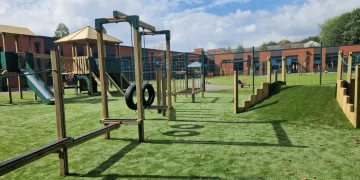Should I Let My Kids Fail? 5 Tips to Help Kids Face Failure

Each day, we ask them many questions in order to avoid minor messes and unwanted consequences. We want them to be confident, but we also want to avoid little messes and stains.
If we want to boost their confidence, the next logical question is: Should my children fail?
It’s an unsettling concept. We want our children to succeed at everything they do.
We often bombard our children with reminders, questions, and superhero-like actions to save them from failure when we perceive a danger. Or, even worse, parents will go through deceptive means to ensure their children’s success.
Why Saving Children Can Do More Harm than Good
We’re well-intentioned parents. All parents want their children to feel happy and proud of themselves and their achievements.
When kids do not experience failure, they don’t have the chance to learn from mistakes or improve in the future. They’ll also lose the courage to take risks and will not be able to face their problems or accept them.
It’s even worse if we save our children, and they start to think that everything will work out. We all know this is not the case.
Jennifer Hartstein, a child and adolescent psychiatrist, says that “kids who are constantly bailed out of problem situations will come to avoid situations where they might fail.” Jennifer Hartstein says that “kids are more likely to avoid situations in which they could fail if they’re constantly being bailed out.” This can lead to anxiety and depression as they age when they have to rely on themselves.
By allowing our children to fail, they will learn to solve problems creatively.
Should you let your children fail?
Everyday mistakes are a normal part of life.
Failures are not what makes us human. Mistakes do.
We can learn from mistakes and adapt to difficult and new situations that we will encounter throughout our lives.
Making mistakes and learning from those mistakes will help our children develop more self-confidence and resilience than if we save them.
Here are five strategies that can help children deal with failure.
Five Strategies for Facing Failure and Learning from It
1. Leap – as a family
Tell your children that taking risks is a family value. Tell your kids how you have made mistakes but kept trying.
Reinforce this belief by your actions. Don’t punish your child for making a mistake. Instead, encourage them, refrain from judgment, and listen with empathy.
Risk-taking becomes a family priority, and kids are more willing to try new experiences. They may even sign up for calculus or ride the most terrifying roller coaster at the park. You will also feel more comfortable doing things that are outside of your comfort zone, such as learning a language or taking up a hammer to help Habitat for Humanity.
When you work together, difficult things become easier. Encourage your family to take risks, and you will be surprised at how brave you are.
2. You don’t have to know everything
We’re all bound to make mistakes as we learn, whether it’s tying shoes, making free throws, or diagramming sentences. Tell your children that they can expect to fail when trying new things. It’s expected. Stress the importance of learning from mistakes and how they make us stronger.
Wendy Flynn once said: “Allow yourself the opportunity to be a novice, because no one is born an expert.” If kids and adults truly believe this statement, they can see failures through rose-colored lenses. Failures are not setbacks but steps toward success and lifelong learning.
3. Take a Look at the People Who Have Achieved Success
Michael Jordan, Steve Jobs, and Oprah Winfrey are just a few of the many successful people who have overcome obstacles in their careers.
You can also share your own experiences with your children, such as how you have overcome difficulties.
4. Run a Post-Game Analysis
We want to help our children when they fail, but we should avoid doing so. However, we can support them and go over what happened.
You can try empathizing by saying, “I know that was difficult for you.” What would you do differently next time? ?”
Do not solve their problems, but rather allow them to develop critical thinking skills.
5. Support your students by Letting Them Go
Parents are often under the same pressure as students to ensure their children get straight A’s. It’s hard to let your kids fail in school, but it is also the place where they can take the most responsibility for their success.
They will benefit from learning how to organize assignments, practice, deal with classmates and teachers, and improve their work as they prepare for college and enter the workforce. It doesn’t necessarily mean that you should completely ignore your child’s academic or extracurricular responsibilities. Just provide the right support.
Please give them the resources and tools to help solve any problems that may arise. You can help them recognize when they are struggling and what to do about it. For example, you could talk to their teacher after class or study with a buddy.
Practice how you would approach a teacher about a test score. Make sure that your student meets with the teacher and not you.
Final Thoughts
Let your child experience the consequences if the report card shows a poor grade. This will teach them a valuable lesson. Please encourage them to raise their grades, but let them take responsibility for it.
They will be proud to have earned the grades they worked hard for. Their work ethic and sense of responsibility will carry them to college and beyond.
The answer to the question, “Should I allow my children to fail?” is simple: by giving them the tools to bounce back and roll with the failures, we will teach our kids a valuable lesson for the rest of their lives.
We can’t always protect our children, but we can teach them how to be their best. Failure will lead them to make difficult decisions and guide their success as they age.












